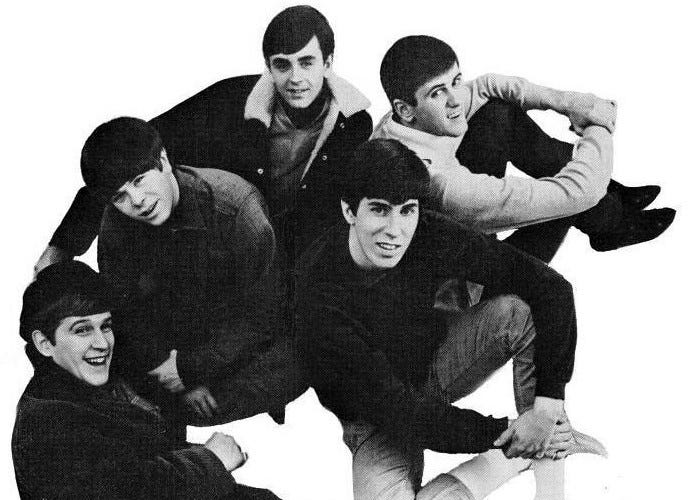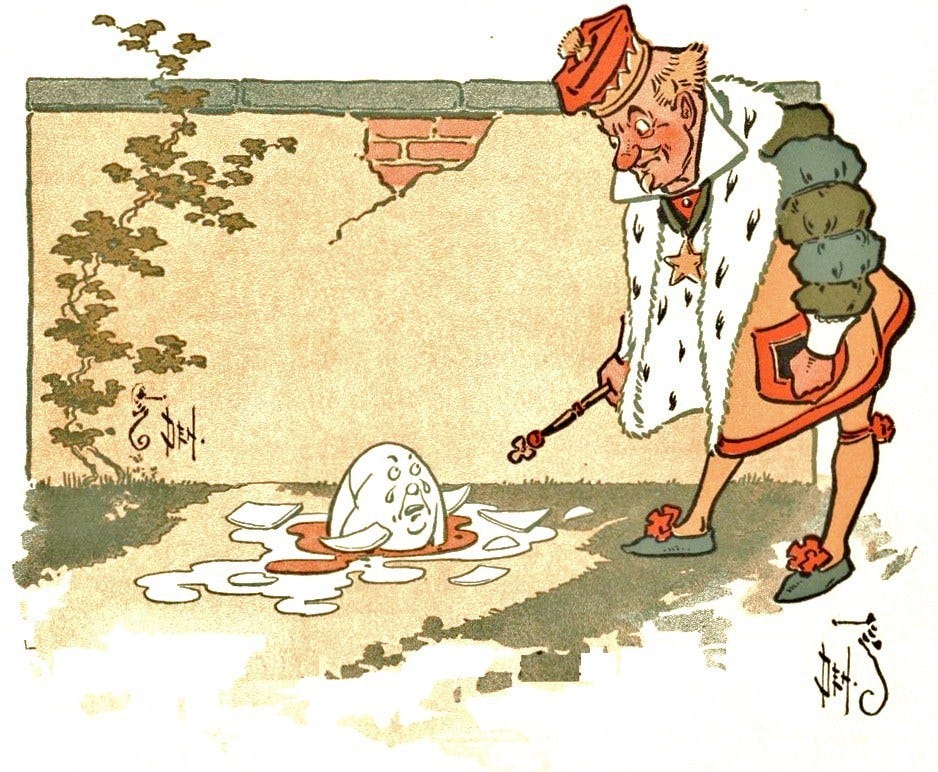Admittedly, I am a geezer. To be considered a geezer, according to many googleable sources, you must have first soaked in the sun of sixty summers. You can then look forward to becoming a codger, at 76, and possibly a coot (sometimes redundantly referred to as an “old coot”) on reaching the century mark.
I mention this because geezerhood often brings with it the risk of simultaneously becoming a curmudgeon. A curmudgeon is not a strange-looking fish, but rather is, according to one definition, a “bad-tempered person, especially an old one.” So graduating to curmudgeonhood “goes with the territory,” so to speak, once you become a geezer. That’s my excuse, anyway.
But let’s be realistic. Anybody can claim to be a curmudgeon – just as anybody could claim the ability to leap over tall buildings, run faster than a speeding bullet, etc. But I am about to prove to you that I really am the genuine article: a dyed-in-the-wool, double-rectified, aged-in-the-barrel, certifiable curmudgeon.
At the risk of being dubbed a “spelling Nazi” or a “pronunciation Fascist,” here goes:
Exhibit A) What’s up with people spelling the word “lose” as “loose” and vice versa? Whippersnappers these days! And it is not just once or twice that I have seen people write things like the following:
“I don’t know what’s wrong with me. I must have a screw lose!”
-and:
“If you loose another game, coach, you’ll be fired!”
To paraphrase (or translate) the words of the great Vince Lombardi, “Was zum Teufel ist hier los!?!”
Exhibit B) English is hard. There are many words that are spelled the same, but pronounced differently. And there are words that sound the same, but are spelled differently. Get used to it! Get over it! Consider context!
A prime example (but not in the numerical sense) are the words lead, lead, and led.
Note that the first two listed above are spelled the same but are pronounced differently. One is pronounced the same as “led” and the other is pronounced “leed.” I won’t tell you which is which. Or which witch is which.
The thing that really burns my wick about these words is when I see people spell “led” with a preposterously inserted “a” (“lead”). Again, espying this irritating spelling fail has unfortunately not been an isolated occasion for me. I have indeed suffered mightily lately as a result of several instances of people spelling “led” as “lead.” But “lead” is either a chemical element (also called a “post-transition metal”) or something that someone does who is in the forefront (then pronounced “leed”). “Led,” on the other hand, is someone or something that has been brought to a place or situation. Here is an example of what I have seen (wrong spelling):
“I was lead down the garden path.”
This should, of course, be:
“I was led down the garden path.”
If you truly had been “lead” (also pronounced “led”) down the garden path, the person leading you must have been some sort of haywire alchemist.
So to make it plain, here are some good examples (proper spelling/usages) of those words, shown in context:
1) “Rory Gallagher played lead guitar, while Gerry McAvoy played the bass.” (“lead” here pronounced as “leed”).
2) Well, right about that time people
A fur-trapper who was strictly from commercial
Had the unmitigated audacity to jump up from behind my igloo peekaboo
And he started into whippin' on my favorite baby seal
With a lead-filled snowshoe – from “Nanook Rubs It” by Frank Zappa
The “lead” referred to above is in reference to the chemical element/“post-transition metal” (pronounced “led”).
3) “The Equus caballus was led to H2O, but it declined to imbibe the proferred fluid.”
Note that the horse was “led” rather than being “lead.”
Exhibit C) People spelling (and pronouncing) “would have” this way: “would of”
That doesn’t even make any sense. Think about it. How does “I would of swam across the river if I knew there were no sharks in it” make any sense? Now, “I would have swam across...” does make sense (sort of – are you really worried about sharks in rivers?). Actually, river sharks do exist, but not in most parts of the world.
Note: the same thing applies to “could have” and “could of”; “should have” and “should of.”If people paid attention to how these are written when the writer or speaker is using a contraction to combine the two words, it should be obvious that “have” is the second word, as the contractions are “would’ve,” “could’ve,” and “should’ve” — not “would’f,” “could’f,” and “should’f.” Exhibit D) Here’s one that drives me crazy (my wife says that’s a short ride, but what does she know? She’s only known me for 2 score of years). Anyway, this is the thing that drives me bonkers/sends me ‘round the bend: When people say, “I could care less” when what they obviously mean (based on the context and their tone of voice) is that they couldn’t care less.
Again, be logical: If you could (or can) care less, then you do care – at least a little. In fact, you can truthfully say that you could care less about the thing that means the most to you in the world. Because it means everything to you, the only direction your caring can go is to be decreased, to be reduced, to be diminished, to lessen. But if you say, “I couldn’t care less,” now you’re talking: you care so little that your degree of caring cannot be further reduced. You’re saying, “I care so little that it’s impossible for me to care any less.”
Exhibit E) Using quotation marks to emphasize a statement.
Quotation marks are supposed to be used when you are quoting somebody (naturally). For example, “Man is the only animal that blushes. Or needs to.” - Mark Twain
But have we not all seen quotation marks on signs at work or on store windows, such as:
“Don’t forget to wash your hands!”
-and:
“Going out of Business Sale! All 31 Flavors Must Go!”
By using quotation marks, the sign-posters are apparently trying to add emphasis to their directive or informative (albeit probably misleading) advertisement. But who are they quoting? If they really are quoting somebody, they should give attribution where attribution is due, such as:
“Don’t forget to wash your hands” – Ignaz Semmelweis
“Going out of Business Sale! All 31 Flavors Must Go!” -- Ben Cohen and Jerry Greenfield
Okay, one more, and perhaps the “big daddy” of them all:
Exhibit F) When people insert apostrophes where they don’t belong, or omit them from where they do belong.
Here are examples of both egregious and unforgivable sins:
1) “The Kadiddlehopper’s are Having a Going-Away Party tomorrow.”
What’s with the apostrophe there? Apostrophes are for possessives and contractions, not plurals. The Kadiddlehopper’s what is having a going-away party tomorrow? The Kadiddlehopper’s kids, or the Kadiddlehopper’s cats, or the Kadiddlehopper’s cartons of cottage cheese, or ...??? On the other mitt, if the apostrophe is there because it’s a contraction, what is that family’s full name? Kadiddlehopperfinkelbinderschloss, or what?
2) “…all of the Kings Men couldn’t put Humpty Dumpster back together again.”
Who are the “Kings Men”? Are they talking about these guys, who had the hit song “Louie, Louie” in the early 1960s:
? If so, it’s one word, “Kingsmen,” not “Kings Men.”
So: get it right, people! If there is an apostrophe in a word, either something belongs to what comes before the apostrophe (for example, “King’s Men” denotes that the men belong to the king), or it stands for a contraction, where one or more letters was left out, as in the apostrophized word “they’re.” In this case, “they are” or “they were” has been contracted down to that shorter bit. Which makes me think of the confusion between the words their, there, and they’re (which all sound the same but are completely different from one another). But we won’t get into that. I’m already just about ready to blow a gasket or a fuse thinking of all this iniquity.
Which leads me to this by way of conclusion:
Another downside to getting older (besides becoming a geezer and a curmudgeon) has been termed “The Furniture Problem”; it’s when your chest falls into your drawers. And that happened to me just now. After getting all that stuff off my chest, an avalanche of quivering flesh has settled into my nether regions.
Oh, well, that’s what you get for trying to help people, I guess.
Clay Shannon is the author of the book “Rebel With A Cause: Mark Twain’s Hidden Memoirs”
You can listen to this post here:





